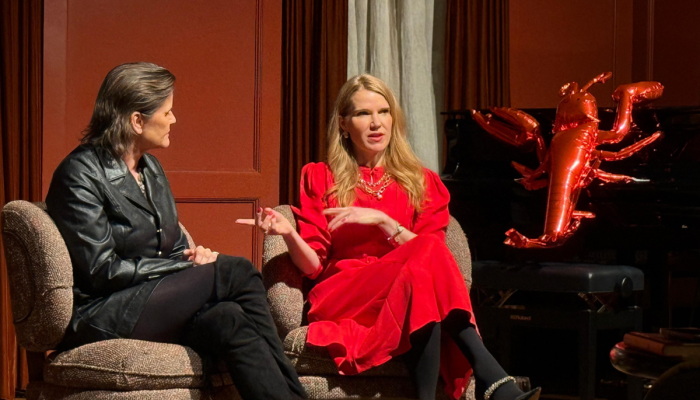Ahead of our Brave Get Together this 4 November we caught up with Amy, Novartis Professor of Leadership and Management at Harvard Business School.
How can we be more effective leaders in challenging times - building teams for innovation and collaboration?
Our culture and the management literature alike have too often celebrated confident, unwavering leadership. Leaders are depicted as the person with answers who guides us forward to arrive at some known destination. But in these unprecedented times, there are no answers, no prior experiences or playbook to define a clear path forward. And when that happens, we need a different kind of leadership. Upheaval creates fear, and in the midst of fear people crave security, which can incline leaders to grab onto the old-fashioned leadership models of strength, confidence, and constancy. But they won’t work.
So how can leaders lead when there is so little certainty? Whether you’re a CEO or the leader of a team on the front lines of customer service, upheaval means you have to ramp up the humility – you must be honest, act fast and flexibly, lean even harder on core values, and ask the people around you to join in.
First, communicate with honesty and transparency.
When what you know is limited, pretending you have a clear answer isn’t going to help. In fact, it will make things worse. Amidst upheaval, effective leaders earn the trust of their teams by admitting what they don’t know. Say what you know, of course, but it’s just as important to be clear about what you don’t yet know. Paradoxically, that honesty creates more security for people - not less.
Second, act with urgency despite incomplete information.
Admitting you don’t have answers doesn’t mean avoiding action. While it’s natural to want more information, fast action is often the only way to get new information.
Consider New Zealand Prime Minister Jacinda Ardern, who laid out a four-level alert system early in the COVID-19 crisis, despite limited data and few answers. At first, she set the system at 2, but raised it to 4 just two days later as cases rose -- a nationwide lockdown that saved countless lives. Acting despite uncertainty is how innovation happens; it’s hypothesis-driven, rather than plan-driven.
Third, hold purpose and values steady, even though situations and goals may change.
Values can be your life raft when everything else is up in the air. If you care about the climate, don’t let that go in times of upheaval. If your core value is health and safety, keep that purpose at the center of every decision. Be transparent about what your values are. In this way, leadership steadfastness shows not in your plans, but in your values.
Finally, give power away.
Your instinct may be to take tight control in challenging times, but one of the most effective, if counterintuitive, ways to show leadership is to share the power you have with those around you. This means explicitly asking for help. Be clear that you cannot do it alone - this will not only provoke innovation but also give people a sense of meaning.
Tickets for our Brave Get Together on 4 November, our biggest event of the year, are on sale now - for members and non-members alike. Head here to see the full speaker line-up and buy yours today.



